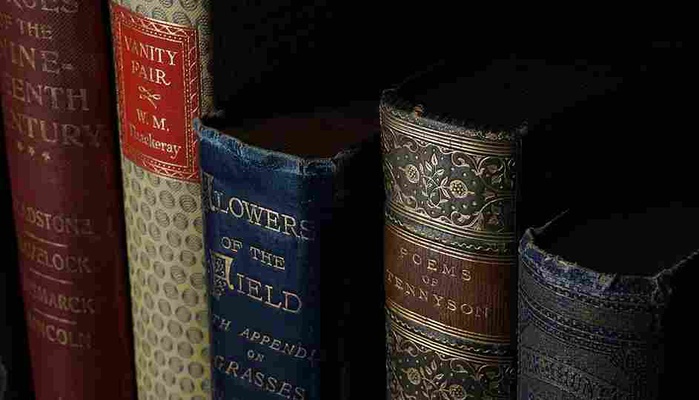How Historical Fiction Teaches About the History and The Benefits of Buying Used Novels

A lot of people frown upon those who choose historical fiction over reading a history book. But do we really need to choose between the two? The definition of historical fiction is simple — it’s a literary genre in which the story is set in the past. But why would we read a fictional story set in the past in order to learn history if we can read a history book instead? Wouldn’t a historical fiction book be more accurate and teach us more? Here is how historical fiction teaches us about history and the benefits of buying used novel.
What Maps and History Can’t Teach Us
Let me try to answer these questions by using an analogy of a map. Imagine a map of my La Latina neighbourhood in Madrid.
It shows you exactly where the streets and main sightseeing attractions are, as well as precise distances between places. It also allows us to see La Latina’s place within the bigger map of Madrid and shows us how it connects with other neighbourhoods. In short, it’s a necessary tool for someone who wants to find their way around the neighbourhood.
Now let me take you for an imaginary walk in La Latina. According to the map, if we go down Segovia Street in the direction of Manzanares river, we will reach the intersection with Bailén Street. But what happens when we reach the intersection?
We see that even though the two streets cross on the map, Bailén Street passes over Segovia Street at an elevation of 25 meters. We would have to climb a long set of stairs in order to reach it.
The map has provided us with exact information. It was correct. But we had to take a walk — if only imaginary — on the streets of the city in order to discover that it also has texture.
And no map of La Latina will ever transmit the clamour of children streaming out of the school on Plaza de la Paja, the scent of freshly ground coffee at La Ruda café, nor the colours of Spanish fans in El Rastro flea market on a Sunday morning.
Historical fiction helps us imagine the richness of texture invisible in history books. Novels put human faces on historical figures we study about. They breathe life into the dry skeleton of facts. Fiction has the power to transport us to the past and make everyday things come to life.
The analogy of a map, of course, is not perfect — history is so much more than mapping out facts on paper. But it helps us imagine the difference between history and fiction without judging them and at the same time see how they complement each other.
I like to think of history and historical fiction as two sides of the same coin.
“The historian will tell you what happened. The novelist will tell you what it felt like.” — E. L. Doctorow
Historical fiction as a teaching tool
Some of us may find history books boring. Learning dry facts can be tedious, especially for young people, and even more so if we try to read about faraway places we have no connection to. Learning history at school is often no more than a duty and we may also have difficulties retaining information from a textbook.
Historical fiction, when used as a complementary tool in studying history, can pique our curiosity and get us interested in learning more about historical events. Sarah K. Herz suggests that once we become immersed in a novel, we become interested and stimulated by its story. We begin to absorb the historical details without realizing that we are being instructed. Learning becomes a pleasure.
“Historical fiction can make history matter — make it irresistible — to young readers.” — Valerie Tripp
Learning From the Mistakes of the Past
Learning history can help us avoid the mistakes of the past. We need to know what happened and understand the decisions that were made in order to be able to take better ones in the future.
But understanding the decisions of the figures who shaped the history of the world, as well as those who thrived because of them or suffered from them, may be difficult without the context of their personal situations, relationships, fears, and desires. Writers of historical fiction come to our help by imagining that context and adding a human layer to the scaffolding of historical facts.
In a recent study, Diana Tamir of Princeton Social Neuroscience Lab has shown that readers of fiction score higher in empathy and theory of mind — the ability to think about others’ thoughts and feelings. If we are moved by reading a novel about the suffering caused by the Rwandan Civil War, if we can identify with the feelings of the victims of the Holocaust, we will have better chances to understand the suffering of the Rohingya in Myanmar.
“Dates are vital to give scale and context: one cannot understand the suffragette movement without appreciating the impact of World War One on the working population. But what really matters is appreciating the flavours and settings of the past, evoking the sense of oneness with the people who lived before us.” — Beth Web, The Guardian
If we learn about the mistakes of the past, the decisions that influenced them — even more, if we can feel them — we can improve our assessment of current events and make better decisions today.
And if that is true, it also means that reading historical fiction can make us better people.
Buying Used Novels
People who enjoy reading develop a positive mindset, which helps them grow in life. They have a higher level of empathy, imagination, and creativity. They create a passionate reading environment wherever they go and encourage people in their surroundings to become more interested in books.
Their gaze is drawn to a specific location whenever they see their favorite author's new book with attractive covers on the market. But the only thing that really matters is the price of books. People are hesitant to buy it because many of us cannot afford to buy new books every time. So there is only one solution to this problem: buy used novels. Moreover, purchasing second hand books online is more advantageous. It gives people, especially students, relief because they need to buy their course book, which was difficult with new books. These used books on the internet save us money, time, and meet our needs.
So here are some incredible advantages to buying used novels:
The Benefits of Buying Used Novels
1. You will be able to save money if you buy used novels.
Of course, this one is self-evident. Newly printed books can be expensive, but buying used novels almost always saves you at least half the price.
2. You'll be reading more when reading used novels.
Nothing motivates you to finish your current book like a stack of equally enticing reads on your shelf. And if you buy cheap used novels, you'll have no trouble keeping that stack stacked high.
3. Buying used novels is more environmentally friendly.
Purchasing a new book isn't as innocent as you might think. Every year, the United States produces 2 billion new paper books. That's millions of trees and millions of tons of CO2 emitted - a significant carbon footprint. Yes, the artwork on the newest edition of The Great Gatsby is pretty cool, but why not help the environment by purchasing one of the millions of used novel copies already on the market?
4. There is a common history in used novels...
Purchasing a used book is akin to purchasing a box of chocolates... You never know what kind of ideas will be scribbled in the margins. That's part of the appeal of buying used novels. You are actively participating in a shared history, and you are free to add your own ideas along the way.
5. You can share used novels with others.
You've finally finished War and Peace. Your favourite passages have been highlighted and earmarked, and you are now free to share your enthusiasm for the well-worn tome. There's something appealing about lending a used novel to friends and family. It's adding another mind to the pages' cumulative life!
6. Used novels have already been gotten into.
Books are not meant to be coddled. Instead of worrying about how to keep the crisp, coffee-stain-free pages of newly printed books, simply purchase a used novel copy. The binding is most likely bent, and you may come across some rumpled pages along the way - but toss it in your bag and hit the road. Used novels have been around the block a few times... they've seen things you wouldn't believe. We're willing to bet they'll make it through a short trip in your tote bag.
7. You have the option to exercise your first-sale rights with used novels!
We (and you) can sell used books, music, or any other copyrighted product because of the first-sale legal doctrine. With the rise of eBooks and other digital works of art, many troubling interpretations of first-sale rights have emerged. Buying used novels is an excellent way to take advantage of your long-established, money-saving first-sale rights!
8. There are some truly incredible vintage covers of used novels out there.
There's no shortage of breath-taking artwork adorning the covers of used novels, from epic 1970s sci-fi to hunky romance novels. Cheesy? Without a doubt. However, it's a great way to strike up a conversation on your way to work on the bus.
9. The smell of an old used novel.
Fresh off the press, all new books smell the same. Used novels, on the other hand, have spent years, decades, and even centuries developing their own distinct aroma. There's that smell of This-Spent-200-Years-In-A-British-Library... This-Was-Well-Loved-By-A-Parisian-Aristocrat smell, and the less pleasant, but still charming, This-May-Have-Suffered-Water-Damage-At-Some-Point-In-the-Recent-Past smell.



Comments